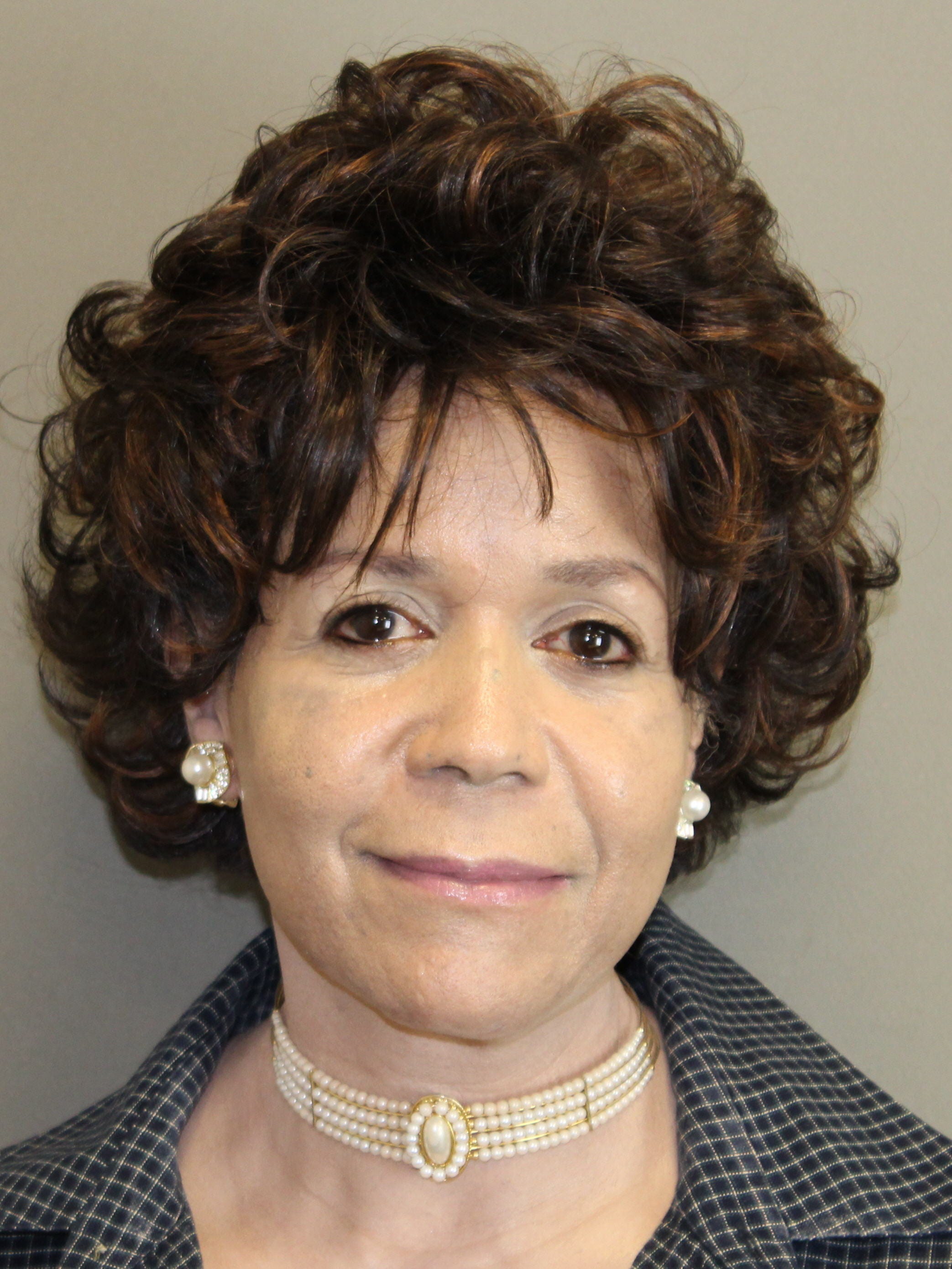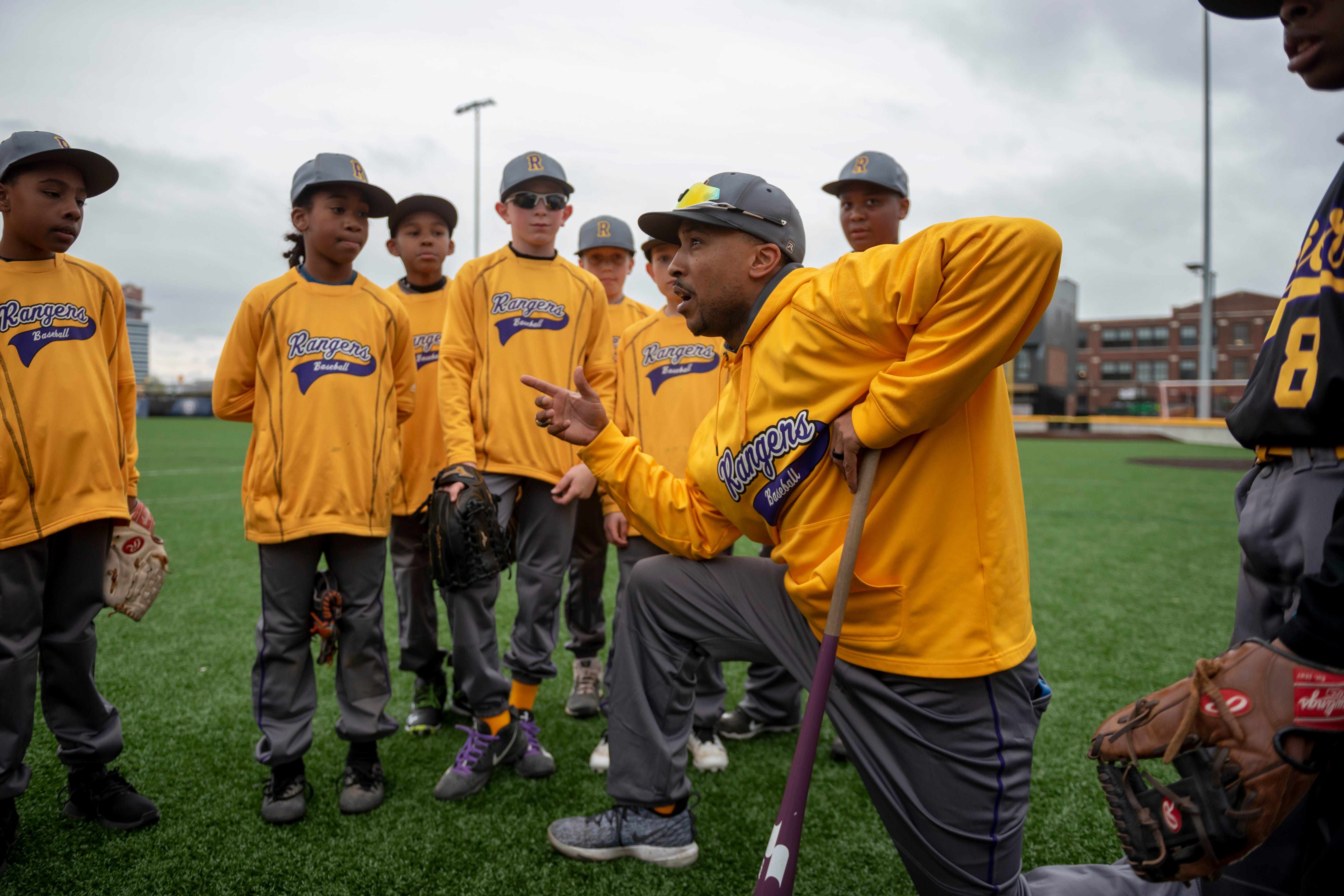At 50, Detroit Police Athletic League keeps up work to 'empower youth'
 Shawn D. Lewis
Shawn D. Lewis
Colleena Bryant honed her basketball skills in first grade.
But she really upped her game when she made a youth sports team at age 6, a moment of acceptance she says impacted her life.
“I learned about being more responsible, and it made me a better player,” said the now 11-year-old, who laces up her Nikes and sports a No. 4 jersey for the Top Ten Bad Girls.

And what about the volunteers who make it possible for her to play?
“I think they’re just awesome,” she replied.
Those "awesome" volunteers are part of the Detroit Police Athletic League, which celebrates its 50th anniversary this week in its relatively new home — the former legendary Tiger Stadium site in Detroit's Corktown.
The stadium and headquarters officially were unveiled to the public in March 2018. The Corner Ballpark Presented by Adient at the corner of Michigan and Trumbull was nearly five years in the making at a cost of about $21 million.
Created as a response to the unrest engulfing Detroit in the late 1960s, Detroit PAL is a nonprofit organization that works in partnership with the Detroit Police Department and community volunteers.
It impacts the lives of 4,000 children each year, and organizers work to create safe and supportive places for kids to play. They also train and certify more than 1,700 volunteers each year to become coaches and mentors. Detroit PAL offers 11 sports programs, as well as youth enrichment opportunities, including FIRST Robotics, broadcast training, financial literacy and youth empowerment workshops, among others.
Organizers note that Detroit PAL events can be found throughout Metro Detroit.
"Detroit PAL events take place at every corner of the city — at 94 partner facilities and at our home, The Corner Ballpark presented by Adient," said Andrea Ray, development and communications manager for Detroit PAL.
Funding for the organization is derived from numerous sources. Its annual budget is nearly $3 million.
Local and state foundations provide about 30% of its revenue. Another 30% comes from special events, most notably the North American International Auto Show Charity Preview and the Paul W. Smith Charity Golf Classic. About 15% comes from corporate sponsorships and 15% from private individuals. The remaining 10% comes from miscellaneous sources, such as program fees and investment income.
PAL program costs vary from program to program, "but we make a special effort to keep registration costs down so that every child has the opportunity to participate," Ray said. "Detroit PAL will also work with families with an inability to pay."
Colleena’s mom, Nikia Bryant, 42, of Redford Township, can attest to the significance of Detroit PAL. Four of her six children have been involved in sports through the organization.
Her youngest, Colleena, and Christopher, 13, continue to play basketball in PAL leagues.
Christopher is in seventh grade, and Colleena is in sixth grade. They both attend David Ellis Academy West in Redford Township, where their Detroit PAL leagues are based.
"And they both ran track, and play baseball through PAL, and Christopher also played flag football,” she added.

Born in the 60s
Detroit PAL's history began with an idea crafted by a police officer.
On the heels of the 1967 uprising, Judith Bayer Dowling, a young police officer, approached then-Police Commissioner Johannes Spreen in 1969 about police sponsoring a youth sports program.
Police and Youth in Sports (PAYS) was the result, and it was created as a part of the Detroit Police Department’s Youth Bureau. Staff included six sworn personnel, including a lieutenant, sergeant and four police officers. PAYS served over 4,500 children in its first year.
The following year, PAYS became affiliated with the National Police Athletic League. It was considered a section of the DPD Community Relations Division but funded by donations. The financial supporters included Ford, GM, Chrysler and AMC. Money also was raised by Detroit police officers playing games against teams from other police departments.
CEO Tim Richey described the organization’s “rich legacy” as being "incredibly important to generations of girls and boys in Detroit,” he said.
“There is a huge support system for parents looking for quality after-school opportunities,” he said.
But, he said, “there’s still more work to do.”
“There are lots of kids PAL would like to reach, and we hope the next 50 years will be as bright and important as the last 50 years,” he said.
Amid the half-century celebration comes change at the top of Detroit PAL's leadership. After seven years as CEO, Richey is stepping down, and Robert Jamerson will serve as interim CEO beginning July 1 through the end of the year. Jamerson served as Detroit PAL’s chief operating officer, overseeing operations and programming. Richey will stay on in an advisory role with Detroit PAL and assist with the transition until the end of June.
Making a difference
After-school sports became the main draw because the organization was founded by some of the major figures in Detroit sports.
Richey named a couple: “(Lions defensive back) Dick ‘Night Train’ Lane in the mid-1970s and (Tigers outfielder) Willie Horton was executive director in the mid-90s,” he said.
Detroit police officers are instrumental in keeping the program vital. Richey said Detroit police Chief James Craig serves on Detroit PAL's board of directors.
“The partnership (with the Detroit Police Department) includes some police officers whose time is lent to Detroit PAL to ensure we have our games and activities in a positive, family environment,” he said. “They also assist with volunteer training, and recruit kids at schools and community meetings to participate in Detroit PAL.”
He said there currently are five police officers assigned full-time to their organization.
Craig describes the difference PAL makes in a child’s life.
“The impact Detroit PAL has made on the youth in our city has been extraordinary," he said. "This program has given young people the tools to be successful, by building high character and learning to deal with adversity.
"As we continue to strive for excellence in Detroit, we must invest in our future and continue to empower our youth."
Time to celebrate
The Detroit PAL headquarters at 1680 Michigan will be the site of the 50th-anniversary celebration from 5:30 p.m.-9 p.m. Saturday.
Detroit Lions,Tigers, Red Wings and Pistons are expected to take over the Corner Ballpark with on-field games. Some games include sack races, tug-of-war and inflatable obstacle courses. Entertainment will be provided by local musicians, ballpark fare will be provided by some of Detroit’s top chefs and a fireworks display will close the evening.
General admission is $50 for adults, $25 for children ages 4-12 and free for those younger than age 3.